Birmingham, MI
Architect: HED Design
Glazing Contractor: Curtis Glass Company
Product: Fireframes® Curtainwall Series and Pilkington Pyrostop® fire-rated glass

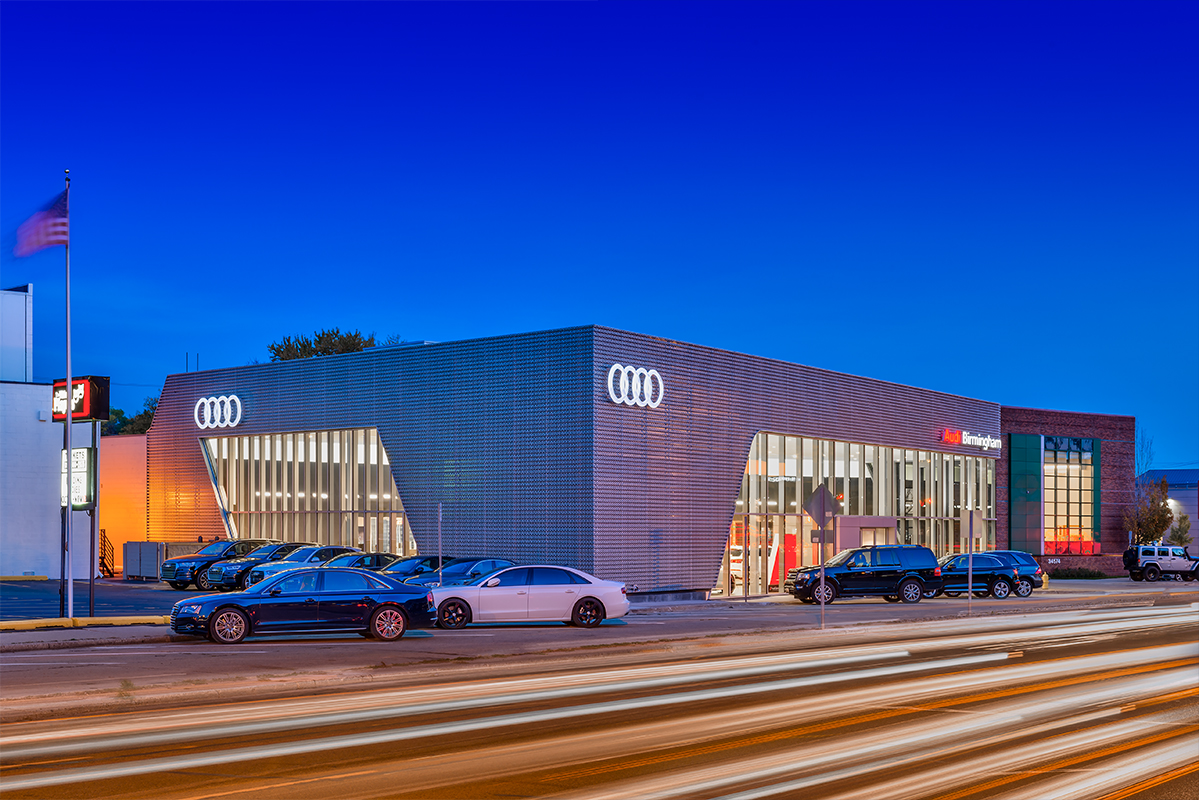
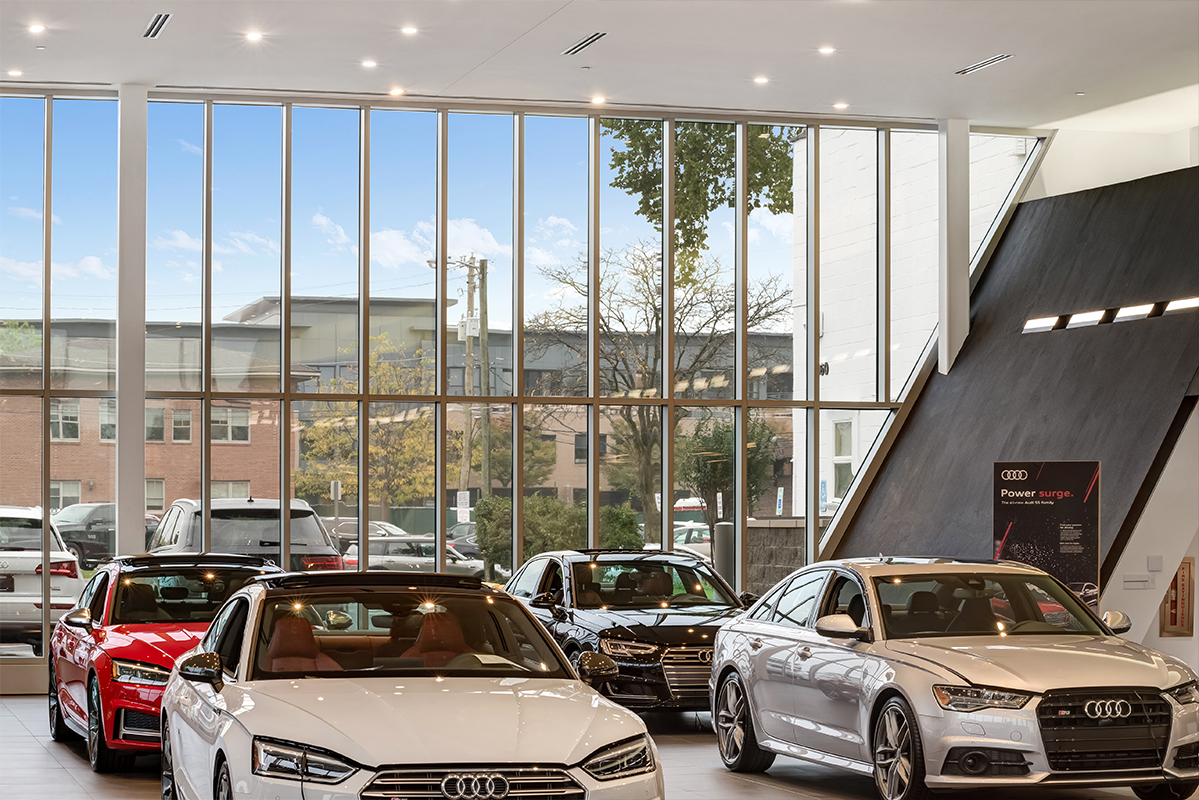
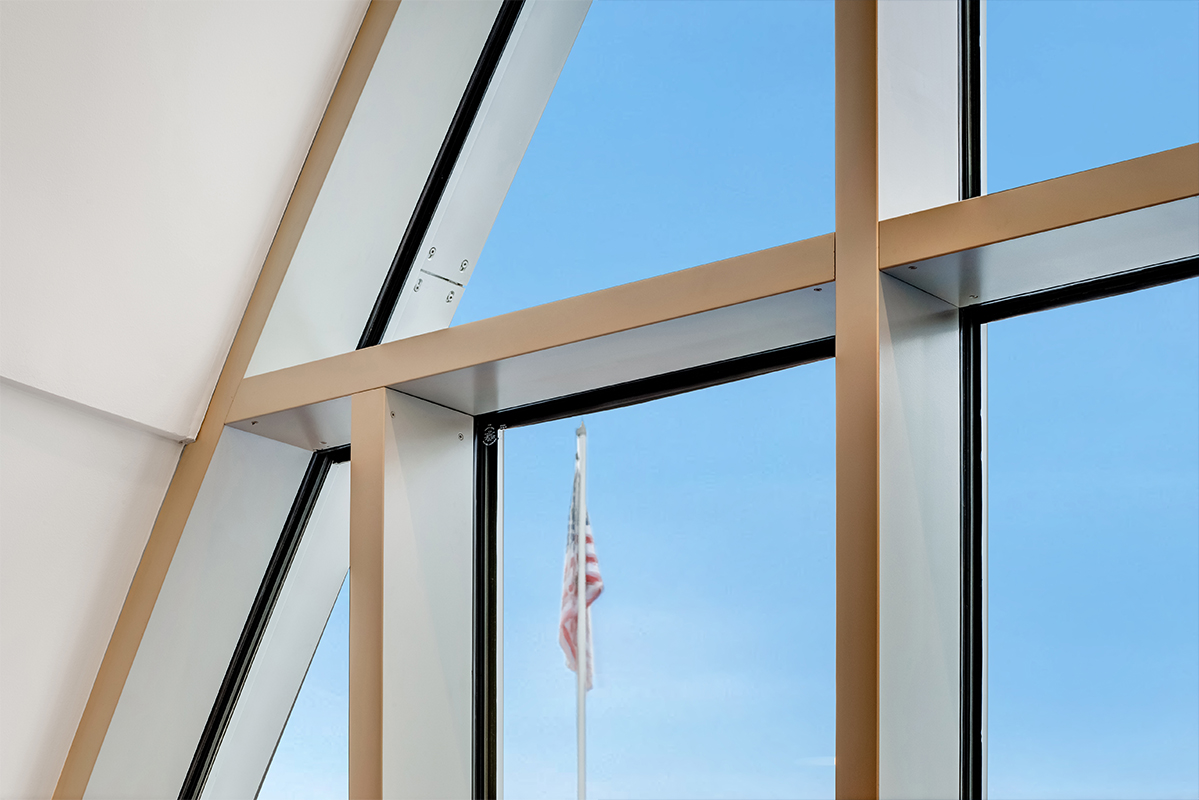
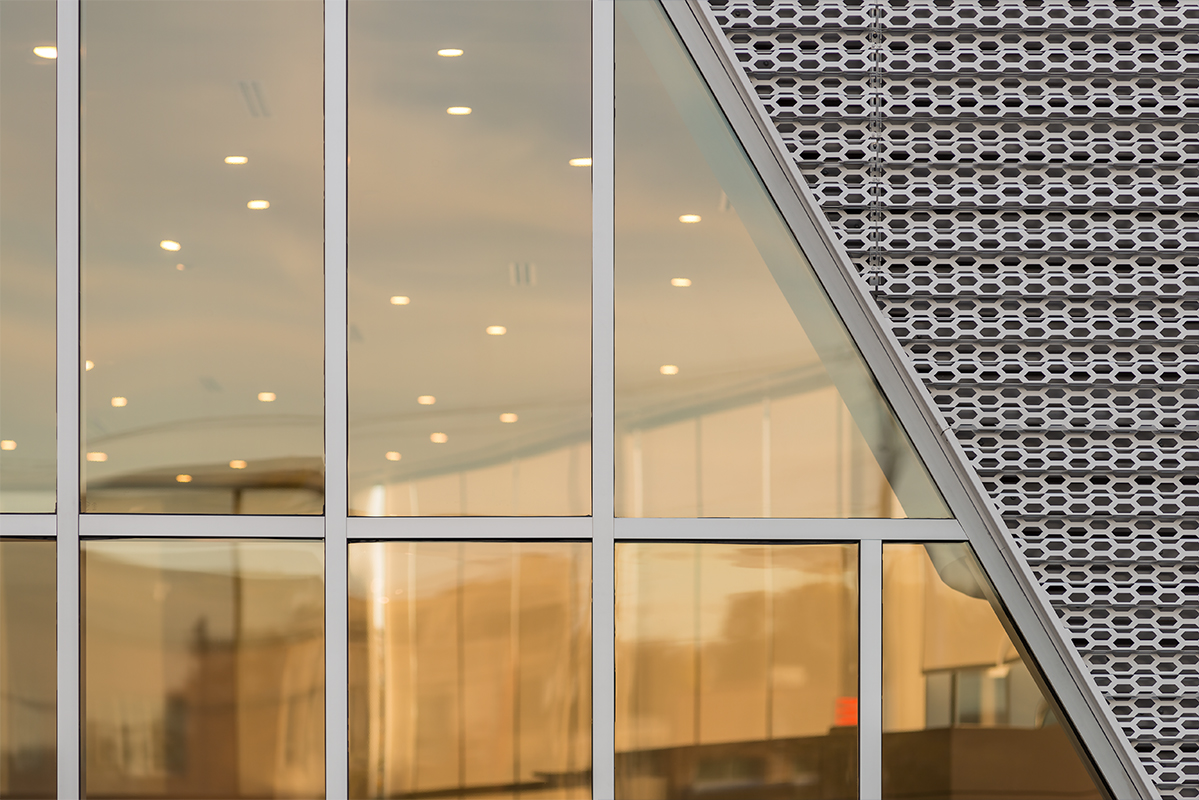
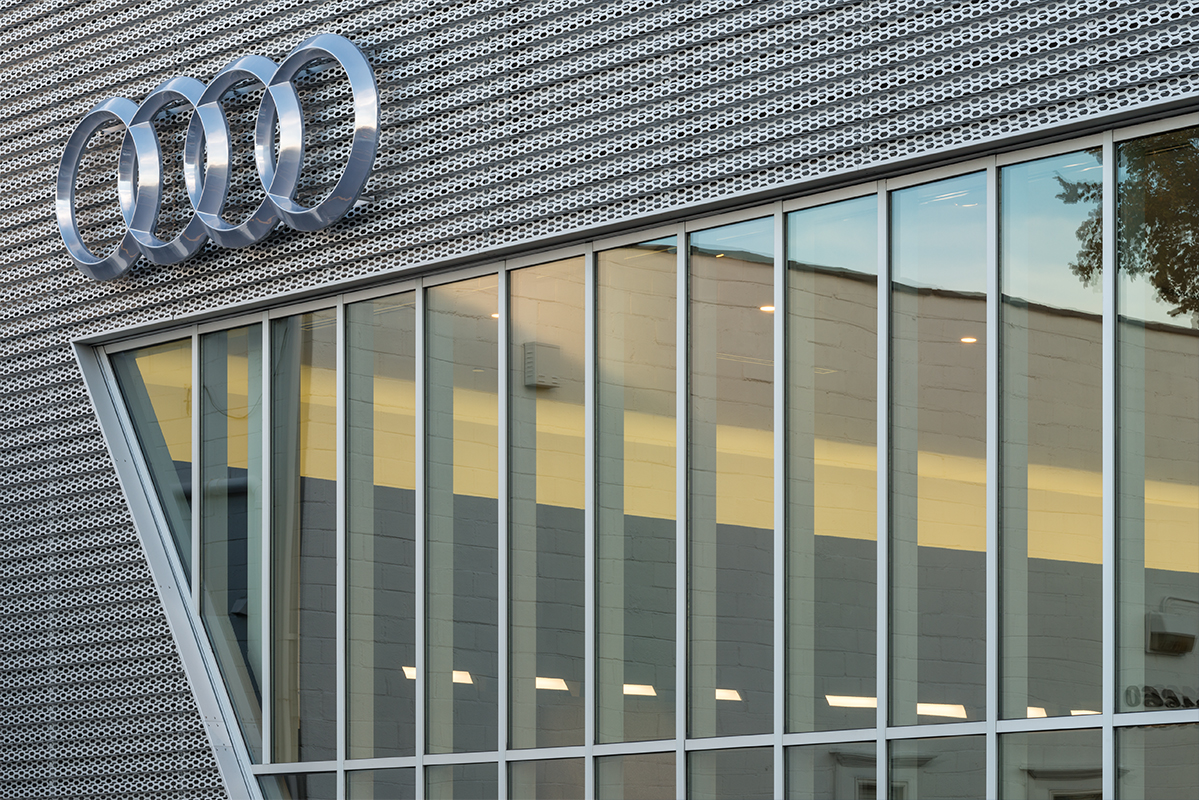
With its iconic four ring logo on the grill and sleek design, consumers know an Audi on the road when they see one. Thanks to the Audi Terminal Concept, the same is now being said of their dealerships. The company's unified design standard is helping dealerships embody the style of Audi vehicles, resulting in buildings that are as identifiable as the cars they hold inside.
For Fred Lavery, owner of an Audi dealership in the Central Business District of Birmingham, MI, following these guidelines meant creating a dealership with a bold, open outer look and ample windows to provide pedestrians with clear views of the cars from multiple vantage points.
"Audi regulations require dealerships to resemble each other as closely as possible," explained Lavery. "This meant we needed a large wall of extremely clear glass to match the other buildings and make it easy for people driving by to see the cars inside."
To create the transparent exterior, HED Design was keen on using a series of expansive curtain walls to reflect the company's spatially open style. The large spans of glazing would also draw attention to the showroom, which sits on one of the most heavily trafficked streets in the district. To move forward with the approach, it was first necessary to overcome several local building code challenges.
The Audi dealership is located in a zone that allows zero space between the building and sidewalk. Due to the narrow property line setback, a building could be constructed near the glass opening on the north side of the property. To prevent a fire from spreading between any future adjacent constructions, local building codes required the use of fire-rated materials along the dealership's north side. "Our hand was forced," recalled Lavery.
Challenged to think beyond traditional methods, Lavery and the design team turned to fire-rated glass to preserve the building's open exterior. It was the only material that could provide lot-line protection and satisfy local building codes without sacrificing transparency and visibility.
With a material in mind, the firm's focus shifted to identifying a product that would align with Audi's upscale aesthetic, explained Lavery. "For the exterior to look normal in the worldwide design delegated by Audi, we needed an unnoticeable difference between the fire-rated and non-rated glazing. The glass needed to be as beautiful as traditional offerings, without distortion and with a true clear color."
Further complicating the matter, HED Design wanted large pieces of fire-rated glass in various shapes and sizes to maintain the desired curtain wall aesthetic. This led to the need for a stronger, more durable framing system, rather than a typical aluminum one, to support the oversized fire-rated glass lites. Equally crucial to the design was a fire-rated framing system with sleek, narrow profiles to ensure visual compatibility with the other non-rated curtain wall systems.
HED Design deftly navigated the project's challenges, finding an all-encompassing solution with the Fireframes® Curtainwall Series from Technical Glass Products (TGP). The fire-rated curtain wall system combines precision engineered, steel fire-rated frames with Pilkington Pyrostop® glass. It is fire-rated for two hours, defends against the transfer of radiant and conductive heat, and tested for the rigors of exterior use.
In application, the system's slender frame profiles and crisp edges blend well with the adjacent non-rated curtain wall systems. Angled pieces and mitered corners even allowed the design team to emulate the company's trademark curved curtain walls. Additionally, due to steel's impressive strength, the frames were able to support the added weight of fire-rated glazing without a significant increase in profile size. In the case of Lavery's dealership, they support 21-foot free spans.
To create the desired glass aesthetic, the system uses Pilkington Pyrostop, which is comprised of layers of Pilkington Optiwhite™ nearly colorless, wireless, low-iron float glass and clear intumescent interlayers. It provides nearly the same level of visual clarity and color as ordinary float glass while still meeting stringent fire- and life-safety criteria. As an added benefit, it is available in large sizes.
"HED researched all of the companies in the glazing industry. TGP's fire-rated glazing product was the only one available in the unique sizes and shapes they needed, in the quality they desired," concluded Lavery. "It allowed the design team to achieve their objective. The glazing looks like regular glass, but it feels different. You can test the strength by simply knocking on it. Otherwise, you wouldn't know the difference."
Learn more about Fireframes Curtainwall Series frames and Pilkington Pyrostop fire-rated glass.